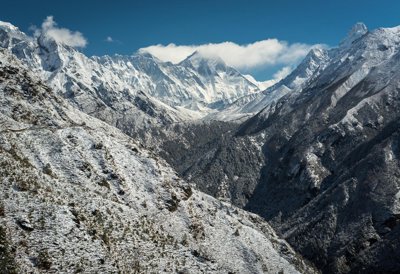How did you get to where you are now?
Having completed a BSc in Geography and Geology at the University of Leeds and an MSc at the University of Manchester in Environmental Monitoring, Modelling and Reconstruction, I began working in the Environmental Consultancy Sector in January 2006. Since then, I have worked for Arcadis, Parsons Brinkerhoff, SLR Consulting, WSP and I now work for OHES, specialising in environmental claims in relation to contaminated land such as oil spills. I help mitigate the risks to a variety of environmental receptors including occupants, ground waters and surface waters following losses of oils or chemicals that are harmful to the environment. I split my time between undertaking field work to assess and then help mitigate the risks and the writing of reports in relation to such works.
I’m a member and Fellow of both CIWEM and the RGS-IBG, and am also an assessor for the Chartered Geographer scheme. Alongside this I’m a Chartered Environmentalist and Chartered Scientist, am the current Chair of the RGS-IBG Regions, sit on the RGS-IBG Council as a trustee, am a Geography Ambassador and write for the RGS-IBG Discovering Britain project.
Was there anything particularly useful that helped you get into this role?
At the time of graduating, many employers were asking for ‘firsts’ from environmental-related undergraduate degrees or masters degrees so I feel my MSc really helped me gain employment.
What do you do as part of your role?
Insurers, or loss adjusters on their behalf, report losses of oil or chemical spills, I then contact them to find out additional details and arrange an emergency spill response if required. Following this, I will do a desk study to find out the environmental sensitivity of the surrounding area and arrange to attend the site to undertake an initial investigation to assess the level of impacts, how far and wide the impacts have spread, and assess the receptors at risk. Following this, I write up my findings in an Initial Report and make recommendations to remove the environmental risks. These remedial works are costed up and, once approved by the client, are undertaken under my supervision. I then take soil, water, and air validation samples to prove the risk pathway is no longer active, and write up a final report to close out the claim.
What skills and characteristics do you need for this role, apart from geographical knowledge?
I need to have good knowledge of soil types, ground waters and location of water courses in order to assess the risks at a particular site. I regularly communicate with various stake-holders (clients, homeowners, local authorities, the Environment Agency or SEPA) so good communication and report writing skills are also key. We have several claims to manage at any one time so being able to work effectively and prioritise workloads is hugely important.
How does geography feature in your work/what difference does it make?
Physical geography is the main aspect of my work. Understanding how liquids migrate through soils and into ground waters or surface waters is a large part of what I do.
What do you enjoy most about your job?
As I work for the ECM North Team dealing with residential oil tanks, I am regularly ‘out in the sticks’ and often work in the Lake District, the Peak District, the Yorkshire Dales, the North York Moors, Northumberland, Snowdonia, and occasional the Scottish Borders and the Cairngorms. As someone that loves the countryside and especially mountainous landscapes, I really enjoy the travel my job brings!
What are the opportunities for career progression? Where might you be in five year’s time?
I originally started out as a Graduate Consultant, I then became a Consultant, followed by a Senior Consultant, and now I am a Principal Consultant. I have several staff members working under me but have turned down team leadership roles elsewhere in the UK as I want to stay in the more mountainous North. I want to get more involved with the Technical Team within OHES when my children get older, although my ultimate ambition is to lead the RGS-IBG.
What advice would you give to someone wanting to go into this career?
Do as much fieldwork at university as you can! I can sometimes spend as little as one day in the office per month so loving the outdoors is key!
Why did you choose geography? Why should others choose geography?
I really enjoyed geography at GCSE, A Level and university and realised there were SO MANY career opportunities that doing geography permitted. I know too many people that are stuck in jobs they hate; I have been studying geography or working as a geographer for 25 years now and love almost every minute of it.
* This interview was undertaken in 2019 and was correct at the time of publication. Please note that the featured individual may no longer be in role, but the profile has been kept for career pathway and informational purposes.
Chris Speight
Job title: Principal Environmental Consultant
Organisation: OHES
Location: Leeds, UK

